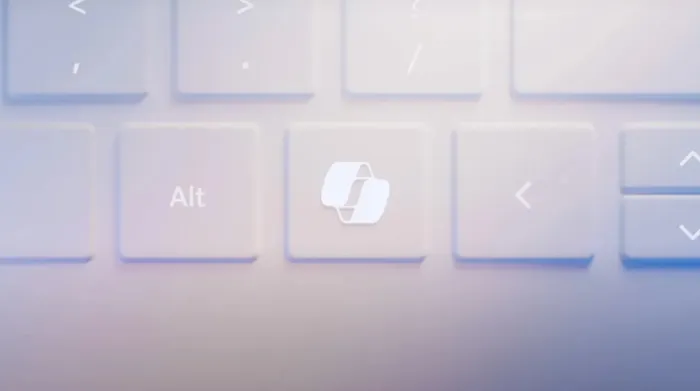
Pick up a computer keyboard from the 1990s and it’ll look practically the same as a brand-new, 2024 edition laptop or desktop keyboard does today. The configuration, layout, and number of keys is largely similar as it always has been.
But that’s soon set to change.
This week Microsoft announced “the first significant change to the Windows PC keyboard in nearly three decades.” The Copilot key will be added to new Windows 11 PCs in the coming weeks and will nestle between the right-hand ALT button and the arrow keys on most keyboards. Pressing the key will load up Microsoft’s generative AI-powered assistant, Copilot, which is powered by the same large language model technology that underpins ChatGPT.
Microsoft has presented the new key as a boon for users, while skeptics think it could be a boondoggle similar to the specialized function keys that blighted keyboards in the mid-1990s. However, still others worried that Microsoft may be drawing attention to its dominant position in the AI space, just a month after the U.K.’s antitrust regulator, the Competition and Markets Authority, said it was examining whether Microsoft’s links to OpenAI were anticompetitive.
“The introduction of the AI button on Microsoft keyboards brings back the discussion around the product bundling that helped Microsoft gain market power in the so-called ‘browser wars’ of the ’90s,” says Catalina Goanta, an associate professor in private law and technology at Utrecht University.
Microsoft’s bundling of Internet Explorer with Windows helped solidify the browser’s position at the top of the market for many years as people began migrating online—and was eventually defeated by the U.S. government in an early 2000s antitrust case, allowing users easier access to alternatives. A similar issue was raised in Europe in 2010, with Microsoft committing to allowing users to make any web browser they chose the default one.
“At that time, browsers were the consumer’s sole gateway to the internet, so a company that prepackaged its own browser and made it the default way to access the internet, would definitely have an advantage over competing web browsers,” says Goanta. She noted that while there are echoes of the browser wars and concerns around bundling here, there are some key differences between then and now. Since the 1990s, the technology market has become far more diversified, while generative AI services are layered more natively into various tools that are used. (Microsoft did not immediately respond to Fast Company’s request to comment.)
But others are more concerned that the key suggests Microsoft has perhaps slipped under the radar while antitrust and public opinion has been focused elsewhere. “Microsoft is cashing out on the reputation it managed to rebuild over the past two decades,” says Juan Ortiz Freuler, a tech lawyer affiliated with Harvard’s Berkman Klein Center. “It had managed to steer away from the techlash that hit Google, Amazon, Facebook, and, to a lesser extent, Apple, and is once again under the spotlight.”
For Ortiz Freuler, “the keyboard is the visible tip of a vertically integrated system,” and “seeks to cement their lead” in data processing power, in part buoyed by the company’s $10 billion-plus investment in OpenAI.
“Much like when regulators sought to keep the web open by challenging Microsoft’s decision to preinstall Microsoft Explorer on Windows, access to AI engines has become the new battleground for tech and requires a similar response,” he says. “Too much power might end in the hands of too few if they fail to act in a timely fashion.”
He’d like to see the Copilot key presenting users with a carousel choice of potential generative AI services to pick from, similar to how Microsoft allows Windows users first setting up their devices to pick a default browser, rather than simply taking them immediately to Copilot.
Providing choice, rather than locking people into a single option, is imperative, he reckons. The reason? The widespread use of generative AI a little over a year since the release of ChatGPT, and the central role it’s forecast to play in the future of all our lives.
“Whereas a small proportion of people were using the web in the early 2000s, over half the world ‘s population is connected to the internet and has access to an AI engine today,” he says. “The risks are higher.”
Related Topics:
